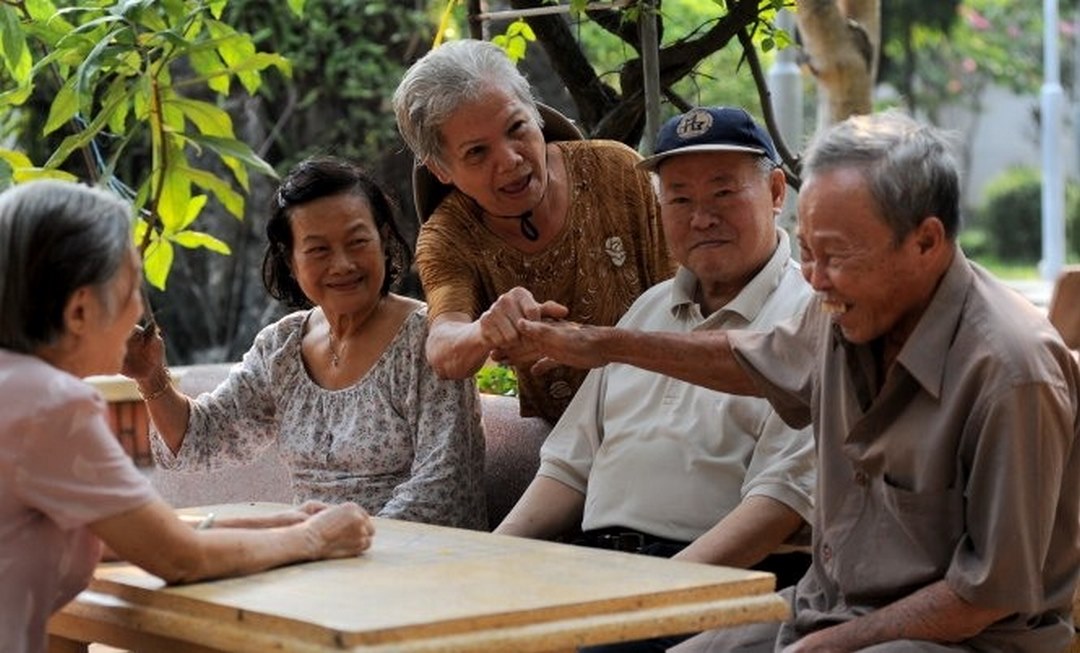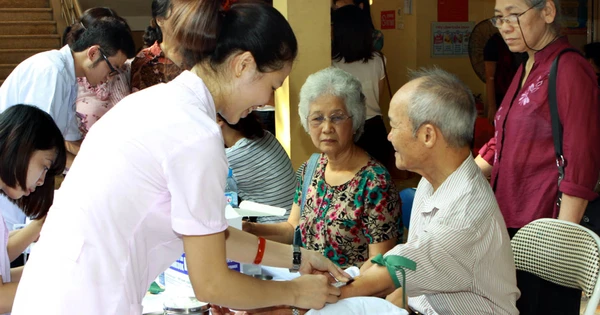Mekong Vietnamese aged care is a topic of interest for some visitors to the Delta who wish to understand or possibly support the local elderly population. This guide provides a general overview specific to this context. We plan to provide some background on the cultural context surrounding care of older persons, briefly note the types of formal care services in functions (as general context will allow), address common challenges, and make responsible recommendations for interested visitors regarding appropriate means to obtain information or provide assistance without compromising opportunity and justice (General context, April 2025).
Understanding Elderly Care in Vietnamese Culture Mekong Delta Context
If you want to understand the support systems for older people in the Mekong Delta, it is helpful to know how strong the cultural context is. Elder care in Vietnamese culture is rooted in keeping with traditional Vietnamese values.
- At the Heart of Families: Family caregivers have historically been the main providers of care and support for older members of their family. Filial piety the respect, duty and care owed by children to their parents and older relatives is deeply embedded in Confucian values. It is a powerful social norm that adult children care for their elderly parents, frequently bringing them into their own homes for inter-generational living situations.
- Community & Neighbors: In addition to immediate family, strong ties in these rural villages found throughout the Mekong Delta often act as an extra level of informal support. Neighbors often help each other in times of need; however,
- Effects of Modern Change: But like the rest of Vietnam, the Delta is not immune to societal shifts. Moving from rural areas to larger urban centers is part of the trend of internal migration, especially for educational and occupational purposes of the younger generation, and thus can sometimes leave parents of these younger generations to become more isolated from immediate family members. Economic considerations can also weigh down families’ capacity to provide extensive care. This brings forth new challenges within families and communities, influencing traditional Mekong Vietnamese aged care practices.

Despite who have put strain on this strong tradition of responsibility, it remains the backbone of elderly care in the region.
Formal Aged Care Facilities And Services In The Mekong Delta Reference Information
Outside of family networks, there are formal Mekong Vietnamese aged care options, but these may operate differently or be less visible than in some other countries. This overview serves as an information tool.
- Trung tâm Bảo trợ Xã hội (Public Social Protection Centers): There are usually government-run social protection centers in each province in Vietnam (including Mekong Delta provinces). These would be receiver establishments, mainly catering to certain vulnerable demographics — elderly people who lack family support or have significant disabilities or extreme poverty and meet the official requirements for admission. They offer rudimentary residential care, meals and support. Details about specific centers or regular visiting protocols must typically go through official provincial government communication lines.»
- Note: The private nursing care home or assisted living sector is still relatively new, mostly found in major cities (HCMC or Hanoi) provinces. Although we know from experience that some private facilities do exist in the Mekong Delta region (particularly around larger cities like Can Tho), we have been unable to locate reliable, all-inclusive listings easily available to the international public. They can be very different in scale and scope of services.
- Religion and Charity: Some pagodas, churches, or local charitable associations in some Delta towns support elderly individuals in the immediate neighborhood without requiring extensive care. This is done more frequently on a local, community level and relies heavily on local resources and initiatives.

This article outlines formal structures operating in the industry of Mekong Vietnamese aged care in the region, against a backdrop of family-based care, its predominant model.
Key Challenges in Mekong Vietnamese Aged Care in the Delta
Challenges for intensive Mekong Vietnamese aged care, formal and traditional family models of care; in the specific context of the Mekong Delta.
- Resource Constraints: The public social protection centers have a very crucial role to play but generally have limited funds allotted to them as well as limited physical infrastructure to work in. Increasing or upgrading formal care infrastructure requires significant investment, which may be at odds with other development priorities.
- Staffing shortages that lack specialization — there is a widespread shortage of healthcare professionals and caregivers throughout Vietnam trained in geriatrics or elderly care. The shortage, which is often greater in rural provinces than in national capitals,
- Geographic Accessibility: The Delta’s complex geography of rivers, canals, and islands, and sometimes less developed road networks in remote areas, can prove challenging. For older people, especially those suffering limited mobility, it can be challenging to attend clinics or hospitals. Outreach services, on the other hand, may find it hard to reach isolated communities easily.
- Demographics of Out-Migration: Many young people from rural Delta provinces migrate to urban centers, including Ho Chi Minh City (HCMC), for work or education. Consequently, some elderly parents have less direct, daily support from their adult children than in generations past.
- Specific Health Needs: Older adults in the region are likely to have specific health needs which may arise from the tropical environment, their occupational history related to agricultural work as well as common non-communicable diseases. Examples of things we do now that will not be possible without accessible and appropriate healthcare services.
Due to these interconnected factors, the Delta region is rapidly changing and influencing the landscape and challenges of Mekong Vietnamese aged care support systems.
How Visitors Can Learn Or Support Responsibly Ethical Considerations
Visitors can approach the subject with great sensitivity and responsibility if interested in learning more about or potentially calling Mekong Vietnamese aged care. Even when tourists have the best intentions, direct, uncoordinated actions can sometimes create unintended problems or disruption.
Learning Resources
- Investigate and Network with Reputable NGOs: The best way to understand current needs and culturally appropriate support structures are through established and transparent non-governmental organizations (NGOs). The same is true for international or Vietnamese NGOs specifically working on community development, poverty reduction or working directly with elderly populations in the Mekong Delta region. Their websites and reports can provide helpful context.
- Official Government Sources: Though social protection in Vietnam is overseen by provincial Departments of Labour, Invalids and Social Affairs (DOLISA), opportunity to procure such detailed, functional information directly via these channels is notoriously complicated for foreign visitors only in-country for a short period.
Appropriate Support Channels
- Wisest Direction for Financial Dons: This less common but often recommended route is to donate directly to a registered, good NGO performing impactful work there. This ensures that funds are used appropriately according to actual needs of the community that have been determined through proper assessments. Do a lump sum of cash to people you meet on the street.”
- Structured Volunteering (Needs to be Well Thought Through): Direct volunteering, especially those where you look after vulnerable people, requires relevant skills (sometimes a knowledge of the language), a significant time commitment (weeks or months not days), to be properly vetted, and to take part as a part of structured legitimate programmes run by a recognised organisation. Short-term, unskilled “voluntourism” visits to care facilities are generally discouraged by ethical organizations, because they’re disruptive and can even be harmful. If you are interested in practical help, please find the official channels to support elderly vietnam and this requires proper application and screening. These are hardly useful for standard tourist routes regarding Mekong Vietnamese aged care facilities.
Adhering to Ethical Travel Principles
- This is where the basic tenets of ethical travel vietnam come into play. Always be respectful of local culture, individual dignity, and privacy. When photographing people, especially elders or children, first ask questions, then request explicit permission. Be aware of coming across as intrusive or voyeuristic, particularly in care environments or private homes (which you should not ‘visit’ without a proper arrangement in place). Sometimes just supporting the local economy by making responsible tourism choices (e.g. purchase local crafts, use local services) provides a more sustainable and dignified way for communities to be supported than attempts at direct aid.
Actions to Strictly Avoid
- Please DO NOT go to social protection centers, nursing homes, pagoda/churches with care, private homes to help anonymously. It disrupts routines terribly, and violates privacy. If a visit is considered appropriate by a host organization, always do it through official, pre-arranged channels.
- Don’t hand money directly to people (including senior citizens or children) asking for charity on the streets or in tourist areas. This may foster exploitation, and it does not solve deep-rooted problems.
- Do NOT photograph or otherwise memorialize people in vulnerable states without clear, informed consent, and even then, read the situation carefully.
- Do not hand out candy, inappropriate items, or used goods. If you want to give items, work with a reputable local organization to make sure the items are truly needed and that they’re distributed equitably and with dignity.
- Do not overly pitying behaviour or intrusive personal questions about what had happened to them that may discomfort the people or erode their self-respect.
If you want to have a constructive conversation about Mekong Vietnamese aged care, focus on learning and respecting and supporting established, transparent avenues.
Conclusion Understanding Aged Care in the Mekong Delta

We then explain Mekong Vietnamese aged care by diving into the concepts of role of family as the primary support within Vietnamese culture and the availability and challenges of formal support systems in the Mekong delta. While we appreciate visitors’ desire to connect with and support local communities, including the elderly, the responsible and ethical thing to do is to stay home.
The more helpful strategies typically include indirect support and respectful learning. That means funnelling any possible support through established, reliable NGOs, rather than through uncoordinated, direct interventions. It means making responsible choices that support the local economy. Ethical engagement requires that efforts are culturally sensitive, respect privacy, avoid actions that may lead to undignified behaviours.
For tourists are best placed to increase their understanding of the situation and make a selective, informed choice to give their support through legitimate, sustainable services so that they can help the ongoing spirit of Mekong Vietnamese aged care specifically in what is a beautiful, and major part of the country.
